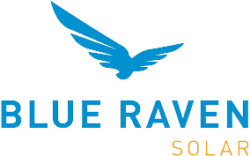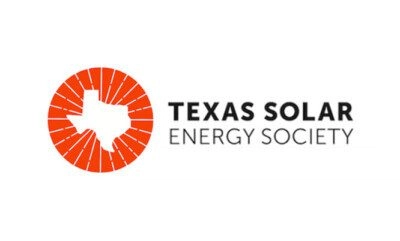Benefits of Solar Energy
Solar energy provides multiple benefits. Let's look at a few of them.
- Smaller power bills: Generating some or all of your own electricity will save you money on your electric bills long-term. Plus, some states offer net metering programs that make it possible for you to sell your extra energy back to the grid, generating additional credits toward your energy bill.
- Better energy independence: Adding a solar battery storage system lets you have trustworthy energy during grid outages and storms.
- Reduced carbon footprint: Using clean solar power means you're less dependent on fossil fuels, which emit harmful greenhouse gasses.
What Solar Incentives Are Available to Plano Homeowners?
Governments and power companies often incentivize homeowners for adopting solar. Here are some of the rebates, tax credits or other programs you could qualify for.
Incentive Type: Property Tax Incentive
Website: comptroller.texas.govIncentive Amount:
100%
Incentive Type: Rebate Program
Website: texasgasservice.comIncentive Amount:
Free Equipment Program: Free appliance installation and weatherization services
Home Improvement (includes attic insulation, duct sealing, duct insulation, duct replacement, high-efficiency gas furnace, and Wi-Fi thermostat: Up to $1000
Solar Water Heater With Natural Gas Backup: $750
Tankless or Super High-efficiency Water Heater: $650
Furnace: $675
Furnace Tune-Up: $40
Natural Gas Dryer with moisture sensor: $225
Natural Gas Dryer Stub: $300
Incentive Type: Rebate Program
Website: support.coserv.comIncentive Amount:
Rebates tiered based on kW installed
Incentive Type: Loan Program
Website: plano.govIncentive Amount:
$25,000
Incentive Type: Personal Tax Credit
Website: ecowatch.comIncentive Amount:
30% federal tax credit for systems placed in service after 12/31/2021 and before 01/01/2033. Good for: solar water heat, solar photovoltaics, biomass, geothermal heat pumps, wind (small), fuel cells using renewable fuels.
How To Choose the Best Solar Company in Plano
The more thorough your provider search is, the better your solar installation will ultimately function. Consider all of these aspects in your service provider search.
Licensing and Training
All solar contractors in Texas must have a state electrical contractors' license from the Texas Department of Licensing and Regulation. The Texas State Board of Plumbing Examiners regulates plumbing regulations and licensing standards for solar thermal installers. Solar companies can also earn accreditations from standards organizations and trade groups. The most prestigious ones in the industry come from the North American Board of Certified Energy Practitioners. Most company websites will prominently display earned credentials, but you should also ask your estimator for more information.
Cost of Solar Panels in Plano
The kind of solar panels you select determines how much energy you can generate. Monocrystalline panels and high-quality and cost more but give you the best performance. Polycrystalline panels produce less power, but they're worth it if you want a traditional panel style without the high cost. Thin-film panels aren't the best for large residential installations, but they are excellent accessories for non-traditional roofs.
You can also add electric vehicle (EV) chargers and battery backup systems. These will increase your total installation cost, but they can boost your solar system's performance. Not all solar companies include these additional features, so look for a provider that installs them if it's crucial for you.
If you're a resident of Plano and are considering getting a five-kilowatt solar energy system, you could plan to spend about $16,650 for parts and installation. See more information on specific component and solar panel costs in the table.
| Solar Panel Cost | Average Cost |
|---|---|
| Solar Monocrystalline | $1,176 |
| Solar Polycrystalline | $918 |
| Thin-Film | $536 |
| Solar Battery | $753 |
| Solar Home EV Charger | $2,823 |
Financing Solar Energy in Plano
Solar contractors offer multiple different financing options to lower your costs and increase your savings. Though some providers offer unique payment plans, the most common are cash payments, solar leases, solar loans and power purchase agreements (PPAs). Most solar experts recommend paying cash or using a solar loan. Cash payments demand a large up-front sum, but they help you avoid paying interest, grant you system ownership, and qualify you for cost-saving solar incentives. Solar loans have the same benefits, though you'll pay more in total due to interest and fees. Much like a car or home loan, you'll pay a set monthly rate with potentially $0 down. Solar leases allow you to pay a monthly fee to rent your panels, while a PPA lets you pay a fluctuating rate based on only the energy you use. We generally don't recommend these options since you will not have ownership of your system and are disqualified from solar incentives, but they might be appropriate in certain circumstances. We advise working with a provider that offers multiple financing options. Ask each salesperson about what's available, and get more than one estimate for the best odds of staying within your financial plan.
The table below lists the average payback periods for different capacities of solar systems in Plano.
The IRS allows you to claim a 26% federal solar tax credit on the full cost of the solar system, so long as you purchase it before 2032. City and state governments and utilities might also offer their own rebates, incentives, and financing programs that could save you more money.
| Solar System Capacity | Estimated Payback period |
|---|---|
| 1 kW | 2.1 years |
| 2 kW | 4.2 years |
| 5 kW | 10.6 years |
| 10 kW | 21.2 years |
Ready to Get a Quote on Your Solar Project?
Please enter a valid 5-digit zip code!
Frequently Asked Questions About Solar in Plano
How much money could I save by going solar in Plano?
Is solar energy easily accessible in Plano?
Will solar energy systems improve my Plano home value?
How long is a Plano solar panel's average lifespan?
Is solar panel installation a quick job?
What is the average payback period for Plano solar panels?
What is "net metering," and how does it work?
To share feedback or ask a question about this article, send a note to our Reviews Team at reviewsteam@thisoldhousereviews.com.


















